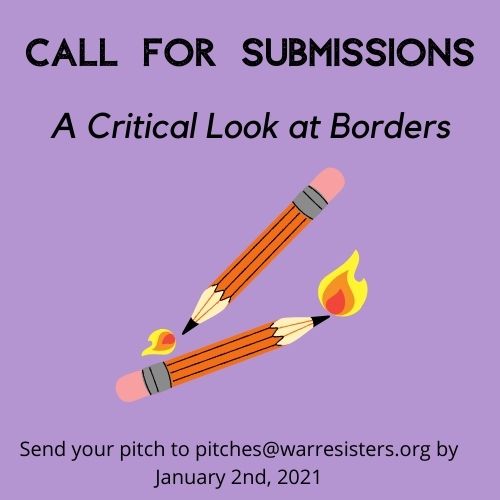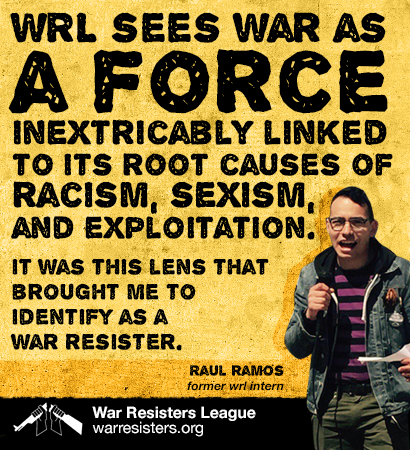Call for Submissions | A Critical Look at Borders
Friday December 11th, 2020
Borders motivate both conflict and cooperation between states, and are a key factor in deciding the movement of people and goods around the world. Borders are often-times colonial constructs that divide Indigenous lands and peoples, such as Israeli borders over Palestinian land. Increasingly, borders have become a space of hyper-militarization and policing for many reasons, such as a means to enforce racial hierarchies, observed along the U.S.-Mexico border. Looking at pre-colonial times, we have examples from Indigenous nations on more fluid borders: marked by natural landmarks, culture, and language. If we can’t completely get away from borders, what examples exist that help us reimagine a different way of interacting with borders?
Both the U.S.-Canada and U.S.-Mexico borders are colonial constructs that divide Indigenous lands and peoples. The northern border is talked about with a sense of pride for being the longest, unmarked, peaceful border. However, that depends on who you talk to: the Haudenosaunee, for example, were previously able to move freely between the border but are now policed by U.S. and Canadian law. The U.S. recognizes the Jay Treaty, which protects the right for First Nations people to cross into the U.S., but Canada does not. This means that Indigenous people south of the border cannot cross into Canada the same way that First Nations people north of the border can into the U.S. In the south, the U.S. is building a border wall through Tohono O’odham land, destroying sacred plants, arresting and harassing members who are trying to move freely. What accounts for the paradox of capitalist governments opening up borders so that good can flow freely but closing them to restrict the passage of Indigenous people, migrants, and refugees?
In popular imagination, the border in the United States is a “line” that the U.S. protects. In reality, the U.S. border has expanded into a 100-mile “border zone,” where 66% of the U.S. population lives – within this zone, Customs and Border Patrol have certain powers like being able to stop and detain people. Policing at the U.S.-Mexico border has been particularly violent – with the caging of people, separation of families, and immediate detention. It has been correctly observed how policing at the border is seen as the “testing grounds” for policing tactics more inland – like we saw when the federal government went in to quell BLM protests in Portland this summer. Technology is often offered as the “safer” solution to policing the border, but it is equally violent. How are various technology companies implicated in border policing? How is surveillance technology, drone technology, etc (among other kinds) marketed as being more humane, but really still part of the problem. What kind of ethical implications are associated with collecting biometric data along borders?
Borders inspire cooperation between states, notably through the policing and exploitation of migrants. In 2017, the EU-Turkey deal had states cooperating to send migrants back to war zones. Morocco is paid by the EU to keep out migrants trying to get to Spain. In 2019, the Trump administration announced the Remain in Mexico program, in which the U.S. and Mexican governments cooperated to keep non-Mexican migrants from staying in the U.S. Where and how else are we seeing the outsourcing of border patrol, and what is the impact? Aside from economic reasons, what are reasons that these states are cooperating?
In war-making, borders serve many functions. The United States will defend the right to enforce its own borders while waging borderless wars, notably through drone warfare under the War On Terror. Borders are a tool to invoke nationalism, often using racism, as we have seen clearly in the U.S. discourse on its border with Mexico. Regional powers continue to shape geopolitical territory disputes, like in Kashmir, which has been divided into Indian-controlled, Chinese-controlled, and Pakistani-administered areas. And of course, borders are a tool to enforce sieges. For example, from 2012 to 2018, the Syrian regime besieged over 1 million civilians within the country in its campaign to force people back into submission. How has the concept of borders expanded beyond the concept of a line of demarcation in relationship to the mass exodus of refugees from Africa & the Middle East into Europe? How has the use of the Greek & Turkish Coast Guard to patrol the seas changed the concept of borders?
Want to join the conversation? We are looking for 800-1,000 words responding to any of the questions above, particularly from folks directly impacted by war and militarism. In your pitch, tell us a little bit about yourself and whether you are directly or indirectly* impacted by war and militarism. Successful pitches clearly outline the ideas to be explored or arguments made in the piece. We are able to select a limited number of pitches per month that we can compensate for publication. If selected, writers will be compensated $200. If you are interested in publishing with us regardless of compensation, please indicate so in your pitch. Send us your pitch to pitches [at] warresisters.org () by January 2nd, 2021
*We consider everyone to be either directly or indirectly impacted by war and militarism, as there is no one who isn’t touched by or part of the war machine. For example, if someone pays taxes in the United States, they are indirectly impacted by war through income taxes going to fund the Pentagon.
Share






